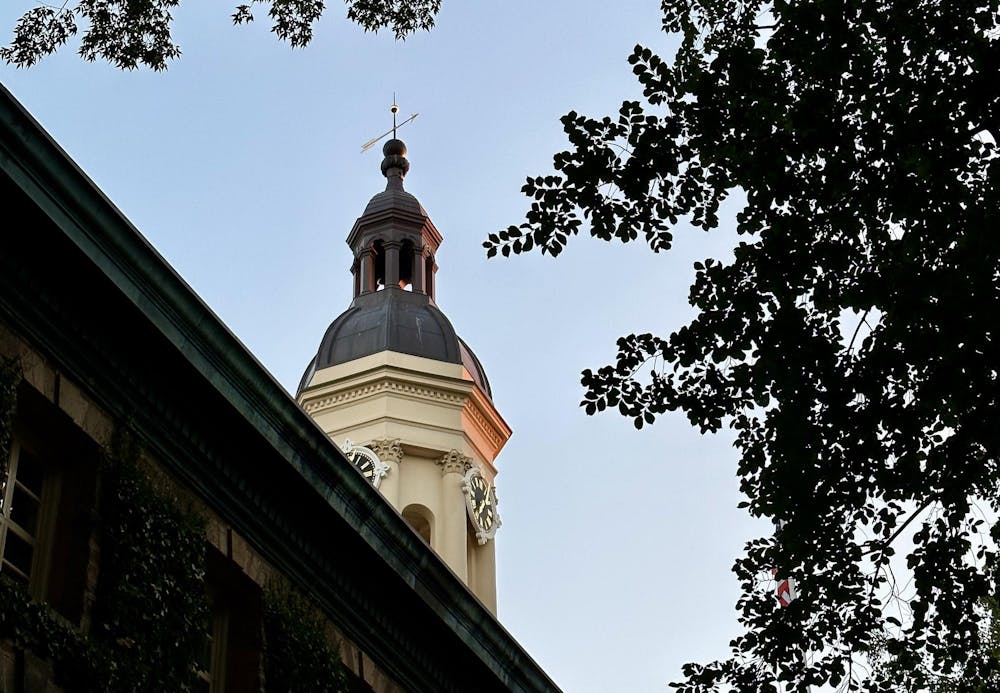In the wake of the Harvard University, MIT, and the University of Pennsylvania’s presidents’ Congressional testimony in December, national discourse has turned a critical eye towards universities and their presidents. Although many presidents have since fallen under scrutiny, President Eisgruber has done fairly well — he has yet to bear the brunt of Congressional criticism.
As both a leader and a figurehead, Eisgruber has frequently struck the ‘perfect balance’ of collegiate presidency. If need be, he will swiftly come to the defense of Princeton’s core values — like when the Supreme Court struck down affirmative action last summer and when Princeton challenged DACA’s termination at the Supreme Court — but his choice to respond to issues of national attention is limited to those pertaining directly to education or the University. However, amongst the student body, perceptions of Eisgruber are a different story.
Voices at Princeton have criticized him for his shortcomings and inaction (and certainly, Eisgruber is not without his faults), but his problem is institutional rather than personal. Undoubtedly, Princeton is defined by its identity as a prestigious and historic institution, and by the values it represents. However, before that, Princeton must be defined by the student body first and foremost. It is imperative that the President represent his most important stakeholders.
Indeed, college campuses frequently function as a microcosm of our national discourse and society. Universities are rife with social advocacy, academic diversity, and forums for uninhibited expression; increasingly, the essence of the American university orbits around the voices of the undergraduates. Similarly, it has become all the more important that University presidents remain receptive to the student body.
Several Princeton presidents have looked to “institutional restraint” as a guiding ethos of their presidency. “Institutional restraint” was established by former Princeton President William G. Bowen in 1985. In principle, Bowen’s premise was simple: although other universities upheld full “institutional neutrality,” Princeton needed to uphold certain beliefs as a “value-laden institution.” But in practice, this had extensive implications: Bowen’s policy provides all of Princeton’s presidents a means to acknowledge socio-political stances as the face of the University. Within a certain degree of jurisdiction, Eisgruber has also exercised this prerogative, ignoring the priorities of the students.
As a result, a seemingly insurmountable wall remains between Eisgruber and the undergraduates. In the words of Stanely Katz, a SPIA lecturer with the rank of professor, President Eisgruber gives the impression of being “notably isolated.” It is perhaps fitting then that even in the 21st century age of advocacy on university campuses, others have continued to describe his mere role on campus “as an administrator” to the “internal community”.
Just last month, some students on campus criticized the narrow scope of Eisgruber’s State of the University letter. Others at the ‘Prince’ have demanded that Eisgruber take a more active stance on the mental health crisis. It is clear that many Princeton students feel that Eisgruber is sidelining the voiced concerns of the graduates and undergraduates alike.
At least to an extent, Eisgruber does contribute to the campus conversations. He hosts conversations with alumni and distinguished speakers. He has released statements that defended academic freedom, condemned Hamas’ October 7 attack on Israel, and endorsed affirmative action. However, his highly structured discussions and published statements rarely derive from genuine discussion with the students that he represents, and ultimately fall short of truly representing the present student body.

More than that, students’ opportunities to engage with him about these issues are relegated to the occasional residential college conversation, and through highly formalized public avenues like the Undergraduate Student Government and Council of the Princeton University Community (CPUC) meetings. Even during his discussion with my residential college, I felt as though his responses were meticulously coordinated and a reiteration of a previous official University statement. Merely showing up to campus sporting events and arts activities, as he has done more frequently over the last year, is not sufficient.
Eisgruber needs to engage more openly in genuinely constructive discourse. In his State of the University letter, Eisgruber concurs with New York Times columnist Michelle Goldberg, that the “three presidents who testified… walked into a trap.” Although Eisgruber’s approach to discourse is sensibly structured to avoid such ‘traps,’ he often treats discussion with students with the same caution as a Congressional ambush.
While Eisgruber is sometimes compelled to merely address an issue or affirm the University’s public stance on a relevant event, this dialogue tends to be generalized, formulaic, highly controlled, and disengaged. His few appearances are full of clear and controlled messaging that dissuades public testimony, as well as any legitimate engagement with undergraduates.
But Eisgruber must be more than an administrator bound to “institutional restraint.” His public-facing persona as the figurehead of the University cannot apply to the student body. In addition to representing the opinions and positions of the University more broadly, Eisgruber must be more radically responsive to the students internally. After all, if the University does not respond to the needs of the students, then the University and students risk becoming separate entities entirely. Therein, students may risk feeling disconnected from the identity of the University at large, and from the identity of a “Princetonian.”

Eisgruber, as president, needs to engage more in the collective discourse within Princeton. Beyond being an effective president, he must also become an effective representative. In the eyes of the nation, Eisgruber is the head of Princeton University, one of the most prestigious institutions of higher education in the world. But on campus, there is a dissonance. To the students, before being the ‘President’, he must be ‘Eisgruber’. That is the responsibility of the role.
Wynne Conger is a first-year and prospective SPIA major from Bryn Mawr, Pa. She is an Associate Opinion editor and can be reached by email at wc2918@princeton.edu








